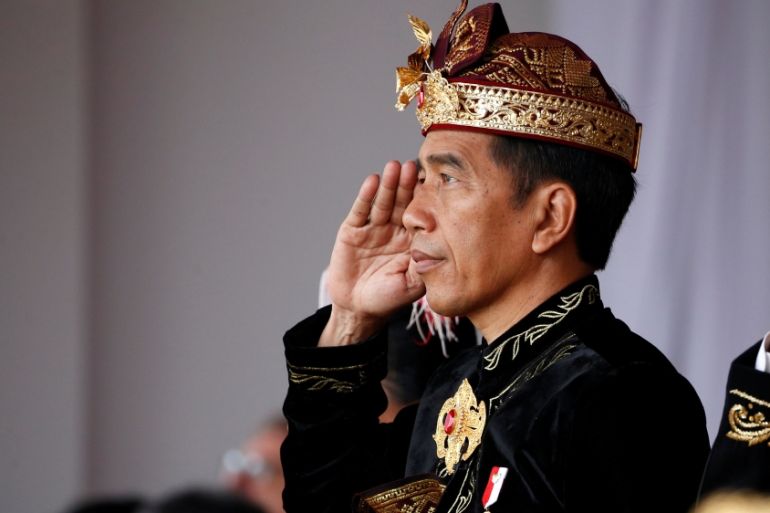Indonesia protests will not derail reform agenda, says president
Indonesia’s Joko Widodo says people can express their opinions, but he has authority to see through reforms.

Indonesian President Joko Widodo said the wave of protests sweeping the country over his government’s controversial legislative agenda would not derail reforms aimed at bolstering growth in the face of a global slowdown and ongoing trade war.
“Indonesia is a democracy,” the president, known as Jokowi, said in an exclusive interview with Bloomberg’s Editor-in-Chief John Micklethwait in Solo in Central Java on Wednesday, noting he had the authority to push through his reforms. “If people want to express their opinions, they can, but the most important thing is no anarchy, no riots, no destroying public facilities.”
Keep reading
list of 4 itemsIndonesian voters go to the polls to choose a successor to Joko Widodo
‘Disappointed’: Indonesians reflect on legacy of departing Joko Widodo
Voters mull party or family as Indonesian president’s son runs for office
As Jokowi prepares to be sworn in for a second five-year term later this month, he’s facing an early test of his authority with plans to overhaul the nation’s criminal code spawning violent protests. The wide-ranging legislation, which among other things would infringe on gay rights, limit free speech and punish sex out of marriage, is seen by critics as a threat to Indonesia’s democracy and foreign investment.
While Jokowi’s moved to delay the amendments to the criminal code, the backlash over that legislation as well as another law passed last month that weakened the country’s anti-graft agency, is a significant shift in mood just months after he enjoyed a landslide election win. On Wednesday, thousands of workers protested in front of the parliament over the country’s labor, wage and health insurance regulations, which they say are discriminatory.
Still, he noted there had been protests when he was mayor of Solo and governor of Jakarta. “They were normal,” Jokowi said. “As president, there are protests in front of the palace too. Sometimes I ask them to come in and I listen to what they want to say. Sometimes I don’t.”
With Southeast Asia’s biggest economy struggling in the face of the U.S.-China trade war and a global slowdown, it also looms as a complicating factor as he seeks support for reforms needed to boost growth and create millions of jobs.